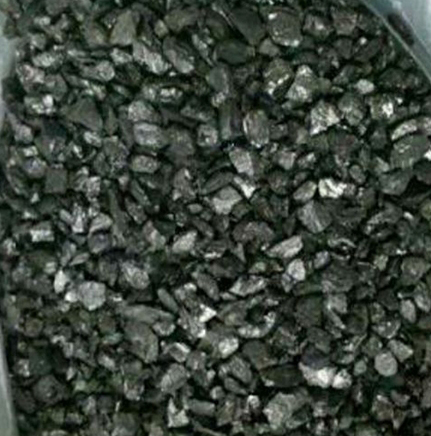
A carbon raiser, which has a high content of fixed carbon, typically above 95 percent, is used to enhance the quality and strength of iron or steel. This material is used widely in the steel smelting and casting processes to raise the carbon level of final products. Carbon raisers come in different forms, such as graphitized Petroleum Coke Carbon Additive (GPC), calcined Anthracite Coal (GCA) or artificial Graphite Powder (AGP). These products have many advantages, such as high thermal conductivity and good insulation performance, low sulphur and sulfur contents, and good chemical stability.
By using carbon raiser in aluminum alloy casting, you can reduce smelting times and enhance the quality of the finished products. It deoxidizes the molten aluminum by reacting with oxygen and sulfur compounds, which can improve the quality of finished products, especially in terms of porosity limit, roughness and dimensional stability. Additionally, the drosses are prevented from being formed.
Castings made of Al alloy are crucial for the production and manufacture of components that have high strength and weight, including those used in automobiles and aeronautics. For example, in North American vehicles, Al alloy castings can be found in several parts, such as the engine block, pistons, powertrain and battery compartments. Cast parts like these can be used to replace heavy metals such as steel or cast iron. This results in a lighter vehicle and better fuel efficiency. Moreover new casting and forging processes are expected to increase Al alloys demand, particularly in the automobile industry [35].

Dies cast from aluminum alloys are an excellent alternative to extruded parts and stamping aluminum. They can be more flexible in terms of design, and assembly costs may also decrease. The casting process can also achieve finer and more accurate details than the stamping or extruding processes. Al alloys were used as support for the chassis, batteries and powertrain in EVs. They must also meet the strict requirements of mechanical strength, dimensional integrity and corrosion resistance.
A carbon raiser is added to a molten alloy of aluminum in order to increase the amount present. The alloy's tensile and creep strength is improved, as well as its melting point. It improves both the electrical and the thermal conductivity. This makes it ideal for use in demanding applications, such as aircraft and spacecraft parts.
Carbon raiser is a material that has graphite-like carbon microstructures. It can absorb and move heat much faster than many other materials. In other words, it takes less heat to melt and smelt aluminium alloys. Carbon raiser is also a way for manufacturers to improve product quality by making more accurate adjustments during the casting or forging process. Carbon raiser, which is environmentally sustainable, requires less fossil fuel to produce than any other source.

Write a Message